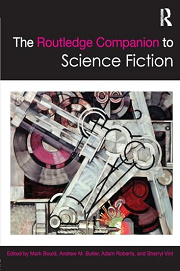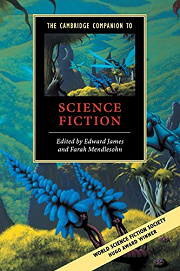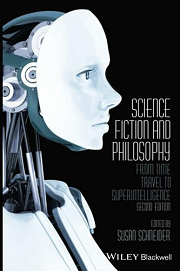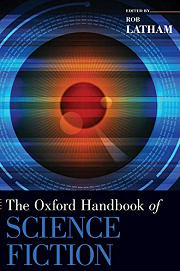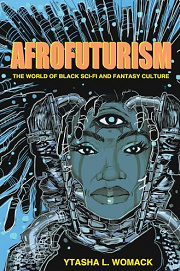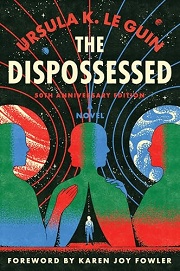Share your thoughts in a quick Shelf Talk!
The Routledge Companion to Science Fiction by Mark Bould, Andrew M. Butler, Adam Roberts, and Sherryl Vint
Bringing together leading voices on authors, themes, and media, The Routledge Companion to Science Fiction offers crisp essays that illuminate everything from space opera to slipstream. It’s a toolkit for navigating the genre’s vast terrain with clarity and curiosity.
Have you read this book? Share what you liked (or didn’t), and we’ll use your answers to recommend your next favorite read!
Love The Routledge Companion to Science Fiction but not sure what to read next?
These picks are popular with readers who enjoyed this book. Complete a quick Shelf Talk to get recommendations made just for you! Warning: possible spoilers for The Routledge Companion to Science Fiction below.
In The Routledge Companion to Science Fiction, did you enjoy ...
... its rigorous, idea‑dense survey of SF history, subgenres, and theory?
The Cambridge Companion to Science Fiction by Edward James and Farah Mendlesohn
If the historically grounded, theory-rich sections you got in The Routledge Companion to Science Fiction—like the sweeping overviews from Shelley through the New Wave, alongside thematic chapters on utopias/dystopias, cyberpunk, and feminist SF—were your sweet spot, you’ll love this volume. It offers similarly authoritative essays that synthesize the field, from Wells and Campbell-era edits to cyberpunk’s cultural turn, giving you that same “lots of ideas per page” hit with clear signposting to key texts and debates.
... the deep dives into questions about consciousness, identity, and ethics grounded in SF texts?
Science Fiction and Philosophy: From Time Travel to Superintelligence by Susan Schneider
You liked how The Routledge Companion to Science Fiction threaded philosophical inquiry through topics like time-travel paradoxes, AI personhood, and the ethics of utopia—this collection doubles down on that. Using touchstones such as Blade Runner and The Matrix, plus classic time-travel puzzles and AI thought experiments, it gives you clear, lively arguments that echo the Companion’s theory chapters while pushing further into mind, self, and moral risk.
... the many‑voiced, cross‑disciplinary perspectives from scholars across the field?
The Oxford Handbook of Science Fiction by Rob Latham
If you appreciated how The Routledge Companion to Science Fiction brought together many contributors—moving from pulp-era contexts to contemporary media and global traditions—this handbook gives you an even broader chorus. It spans print, film, fandom, gaming, and transmedia, mirroring the Companion’s multi-essay structure while expanding the scope so you can triangulate debates across eras, regions, and formats in one place.
... the attention to global and marginalized voices in SF, from feminist to Afrofuturist traditions?
Afrofuturism: The World of Black Sci-Fi and Fantasy Culture by Ytasha L. Womack
If the sections in The Routledge Companion to Science Fiction that touched on race, diaspora, and alternative futures stood out to you, Womack’s guide zooms in with verve. You’ll get a tour through Sun Ra’s cosmic mythmaking, Octavia E. Butler’s transformative narratives, Janelle Monáe’s cyborg suites, and even Black Panther’s cultural moment—deepening the cultural and historical threads the Companion highlights into a vivid, accessible map.
... the sociological, idea‑first approach to science fiction over hardware and technobabble?
The Dispossessed by Ursula K. Le Guin
If the Companion’s treatments of utopia/dystopia and social speculation grabbed you, Le Guin’s novel gives you the lived texture of those debates. Following physicist Shevek between anarchist Anarres and capitalist Urras, it stages arguments about freedom, scarcity, and solidarity as story—an “ambiguous utopia” that reads like the case study those chapters were pointing toward, with ideas foregrounded over gizmos.
Unlock your personalized book recommendations! Just take a quick Shelf Talk for The Routledge Companion to Science Fiction by Mark Bould, Andrew M. Butler, Adam Roberts, and Sherryl Vint. It’s only a few questions and takes less than a minute.
